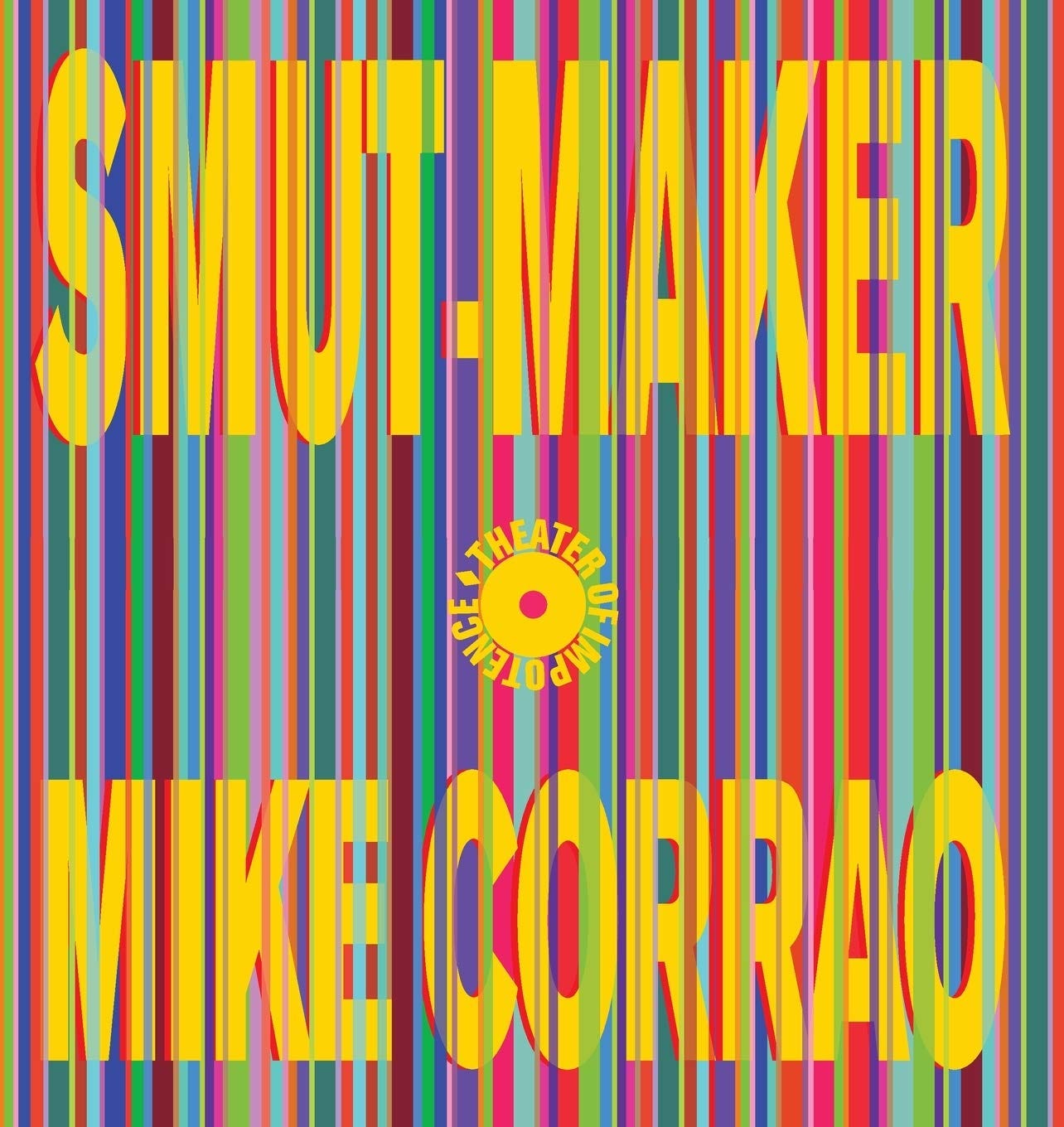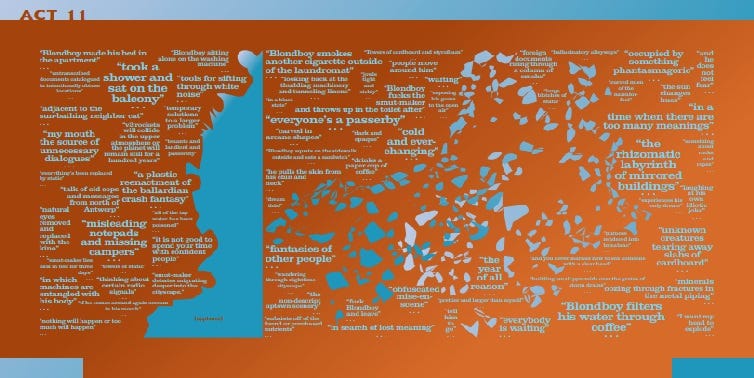Where bodies are kept in the cellar of language,
And skylines diminish to graves,
That atomized lives may advect into capital,
Our voices wretched away by debt.
\\
Haruspicy’s performed with computers
As financiers narrate the entrails of inmates
(Of corpses)
(Of patients)
(Of at-will employees)
They speak guts into cables running under Secaucus.
\\
Dressed in the mold of a moment The first dent of water made by a drowning man’s impact. Before liquid fills his skin and naturalizes his insides to death. Unvalved seconds fall into data – a pluvial lake in a server farm’s basin.
\\
When monitored by market forces, sleep appears to be a hesitation wound.
My body is a fungus grown from blood.
Until sleep’s shade recedes – like a grave luring its carcass.
\\
Shadows deliquesce to mist
In the allwhere time of finance.
We survive on what’s remitted from each sentence that defines us.
Luddites sleep selvaged by static. Dreaming a pasture of collapsing systems.
<keylogging – ad-space – surveilling an overdrawn void / “don’t be evil” / bodies in anthemion – tangled at the stem / exudative thoughts have slurred my relationships – rentiers leaven money with the work-loaned breath of tenants – duct-taped operculum on the lungs – I’m absent from all except mutating weather>
Where everything remains in recrement to haunt the walls.
\\
Tabbing open separate cells. Porn no longer needs a narrative. Isolation is transmissible. Taylorism of your dying brain implying you to breathe. We are all alone.
\\
“Maybe it’s just some disembodied voice that functions exclusively as these descriptive blocks of text,” Mike Corrao writes in Man, Oh Man.
\\
Professionalized privacy.
Means of production as corporatized air.
The body is synonymous with ad-speak.
Language is an artefact used to duplicate one’s presence where they don’t exist.
The disembodied voice posited in Man, Oh Man is taken to its extreme in Smut-Maker. The play’s “endless stream of voices [that] rise through our throat” are sprawled across the page. The voices have no antecedent frame. The reader is tasked with approximating the voices’ body from their own.
I threw up my ribs and spine and didn’t disappear as human. I have autopahgous orgasms – eating my own lust. I auditioned my corpse’s lividity so that death would be prestation, its payment made in blood. The voices in Smut-Maker don’t enjoy the abjection of existence. They are only language. “Vomiting lines from Proust.” We can speak their words, but they’ll never feel the vibration in their chests. We can be virtualized into language, through our own and through software’s, but they can’t materialize into flesh. “The doctor says there isn’t any physical ailment.”
Pornography’s the closest thing to an extravasation of text. Through smut the text might spill its bank into the reader’s bloodstream. The reader’s body mirrors the sentence. “Producing new smut in reality and mimesis.” But the text is a tool of arousal, unfeeling in itself.
Bone loss for vellum / ostracons of our teeth / Each is just a surface / the potsherds are not voting
Every book is a built environment. Words avoid the gutter, to frame themselves by the margins, and plat their own existence. Words exceed the line and break, like a television’s image dehisced by vertical hold, hanging on a hyphen. In Smut-Maker the text is incorporated alongside the play’s “set-dressings,” designed by John Trefry. The set-dressings are like “an impromptu topography of the city” where private properties metastasize. Banks eat away the neighborhood. Stranded among buildings, the valence of our flesh is only combined with labor. Terrible jobs. We context collapse to sprawl. The text may not be a body, but it’s burdened the same as us.
“You’re gonna carry that weight.”




